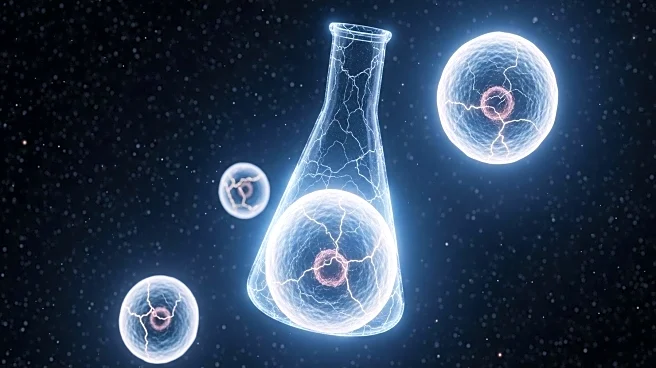What's Happening?
A study conducted by the University of California San Diego has found that human stem cells age more rapidly in space. Hematopoietic stem and progenitor cells (HSPCs) were sent to the International Space Station for 32-45 days, showing reduced self-renewal abilities and increased DNA damage and inflammation. These changes were partially reversible upon return to Earth. The research highlights the impact of space stressors like microgravity and cosmic radiation on molecular aging, providing insights into protecting astronauts during long missions and modeling human aging and diseases on Earth.
Why It's Important?
Understanding how space conditions affect human cells is vital for ensuring astronaut health during long-duration missions. The findings could lead to improved protective measures against space-induced aging and inform medical research on aging and diseases such as cancer. The study underscores the need for strategies to mitigate the effects of space travel on the human body, which is crucial for future exploration missions beyond Earth's orbit.
What's Next?
Further research will focus on developing countermeasures to protect astronauts from accelerated aging in space. Scientists may explore genetic or pharmaceutical interventions to enhance cell resilience against space stressors. The study's insights could also drive advancements in aging research and therapeutic approaches for age-related diseases on Earth.
Beyond the Headlines
The study opens discussions on the ethical considerations of human space exploration, particularly regarding the long-term health impacts on astronauts. It also raises questions about the potential for space-based research to revolutionize our understanding of aging and disease prevention.












